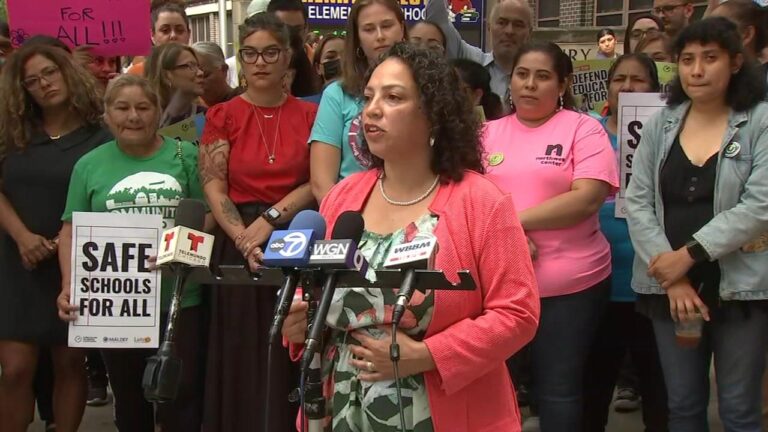Illinois Advances Educational Equity for Immigrant Students Through Innovative Legislation
Illinois has taken a landmark step toward educational inclusivity by passing a law that guarantees immigrant children unrestricted access to public schooling. This progressive statute eliminates longstanding obstacles that once hindered immigrant youth from enrolling in public education, ensuring that every child, irrespective of immigration status, can pursue academic success in a welcoming environment.
The legislation incorporates several vital components designed to support immigrant students and their families, including:
- Ban on enrollment discrimination: Schools are prohibited from denying admission based on immigration documentation.
- Privacy protections: Safeguarding student information to prevent immigration enforcement actions on school premises.
- Enhanced support services: Expanded access to language learning programs and counseling tailored to immigrant needs.
- Family engagement initiatives: Outreach efforts to inform immigrant families about their educational rights and resources.
| Provision | Expected Outcome |
|---|---|
| Equal Enrollment Rights | Full admission access for immigrant students |
| Data Confidentiality | Complete protection of student records |
| Language Assistance | Statewide expansion of ESL and bilingual programs |
| Community Outreach | Workshops and resources for immigrant families |
Breaking Down Barriers to Education for Immigrant Youth
This new Illinois law addresses systemic challenges that have historically impeded immigrant students’ access to quality education. School districts are now required to adopt inclusive policies that emphasize language accessibility, culturally responsive teaching, and equitable distribution of resources. By affirming education as a global right, the legislation fosters an environment where immigrant children can flourish both academically and socially.
Key initiatives introduced under this law include:
- Increased funding for bilingual education: Supporting students who are English language learners.
- Professional development for educators: Training focused on cultural competence and immigrant student needs.
- Strict confidentiality protocols: Protecting students from discrimination and fears related to deportation.
- Family and community engagement: Programs designed to involve immigrant families in the educational process.
| Challenge | Legislative Solution |
|---|---|
| Language obstacles | Expanded bilingual education and ESL support |
| Fear of immigration enforcement | Robust confidentiality safeguards |
| Low parental involvement | Community outreach and family engagement programs |
| Unequal access to resources | Targeted funding for schools serving immigrant populations |
Community and Educator Perspectives on Inclusive Education Policies
Leaders within immigrant communities and education professionals have voiced strong support for policies that embrace all students, regardless of their immigration background. They emphasize that access to public education is a basic human right, and Illinois’ new law represents a crucial advancement in removing barriers that have long marginalized immigrant youth. Numerous local organizations are mobilizing to supplement school efforts by providing additional resources, ensuring that schools become nurturing spaces where diversity is respected and celebrated.
Educators stress that beyond enrollment, extensive support systems are essential. These include language assistance, cultural competency training, and mental health services to promote true educational equity. Key priorities identified include:
- Provision of multilingual educational materials to bridge dialog gaps.
- Ongoing teacher training on immigrant rights and cultural awareness.
- Partnerships between schools and immigrant advocacy organizations.
| Community Input | Focus Area |
|---|---|
| Expanded language access programs | Student Interaction |
| Comprehensive support services | Student Well-being |
| Increased funding for outreach efforts | Resource Distribution |
Strategies for Schools to Effectively Implement Supportive Policies
To maximize the benefits of this legislation for immigrant students, schools must cultivate inclusive and accessible environments. Essential actions include providing multilingual resources and equipping staff with cultural competence training to better serve diverse student populations. Establishing dedicated liaisons or support teams for immigrant families can build trust and streamline communication between families and school personnel.
Moreover, schools should enforce clear enrollment procedures that comply with the law, eliminating requirements such as proof of legal status or social security numbers. Implementing clear monitoring and reporting systems will help ensure adherence and swiftly address any issues. Recommended steps for accomplished implementation include:
- Creating bilingual informational materials that explain students’ rights and available support services.
- Hosting regular training sessions for educators on immigrant student protections and cultural sensitivity.
- Collaborating with community organizations to offer additional social, legal, and mental health resources.
- Establishing anonymous feedback channels for students and families to safely report concerns or violations.
| Action | Purpose | Expected Result |
|---|---|---|
| Bilingual Materials | Enhance communication with families | Increased family engagement |
| Staff Training | Boost cultural understanding | Reduced bias and discrimination |
| Enrollment Procedures | Ensure legal compliance | Seamless student admission |
| Community Partnerships | Expand support networks | Improved student well-being |
Conclusion: Illinois Paves the Way for Educational Inclusion
With the enactment of this transformative law, Illinois sets a powerful precedent in guaranteeing that immigrant students, regardless of their legal status, receive equitable access to public education. Advocates celebrate this development as a vital stride toward closing educational disparities and fostering inclusivity within the state’s school systems. As implementation unfolds, educators, families, and communities will closely observe how this policy reshapes the educational landscape for Illinois’ immigrant youth, promoting a future where every child has the opportunity to succeed.





